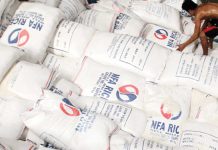
MANILA – Philippine central bank governor Benjamin Diokno has pledged to cut interest rates further and lower the reserve ratio for lenders to support the economy as inflation pressures ease.
“We have more room for monetary easing,” Diokno, 71, said in an interview with Bloomberg TV in Tokyo. “I can promise more cuts,” but the timing will depend on upcoming economic data, he said. The governor said he also wants to lower the ratio of deposits banks must hold as reserves to “single digits” by the end of his term.
Since taking office in March, Diokno has cut the benchmark rate by 25 basis points and announced a phased reduction in the reserve requirement ratio (RRR) for banks, reversing some of the monetary tightening last year. Inflation has eased to the midpoint of a 2 percent to 4 percent target while economic growth slowed to a four-year low.
PH inflation on downward trend
Diokno sees inflation cooling to below 2 percent as early as next quarter on base effects, while economic growth this year will reach at least 6 percent, the lower end of the government’s 6 percent-7 percent forecast range. A full-blown trade war between the U.S. and China will have little effect on the Philippine economy, he said.
Analysts are betting Bangko Sentral ng Pilipinas will continue cutting interest rates and the RRR this year as inflation eases. Consumer price gains may have cooled below 3 percent this month, the bank said on Friday. It estimates May inflation within 2.8 percent to 3.6 percent ahead of the June 5 data release.
Half of the 2-percentage-point reduction in banks’ reserve ratio announced earlier this month takes effect on Friday, adding about 100 billion pesos ($1.9 billion) in funds to the economy.
Policy easing “is positive for the local economy and financial markets due to greater lending and investment activities,” said Michael Ricafort, an economist at Rizal Commercial Banking Corp. in Manila. Bangko Sentral will meet to decide on monetary policy on June 20.
The benchmark Philippine stock index rose 1.7 percent at the close in Manila to a four-week high. The peso was little changed at 52.16 against the dollar.
Asian central banks are shifting to a looser monetary policy to boost their economies, as heightened trade tensions between the U.S. and China weigh on global growth. India has lowered rates twice this year, while the Philippines, Malaysia and New Zealand eased this month.
“If the rest of the world goes cutting or easing, we’ll be accelerating the process of monetary easing,” Diokno said. (Bloomberg)







